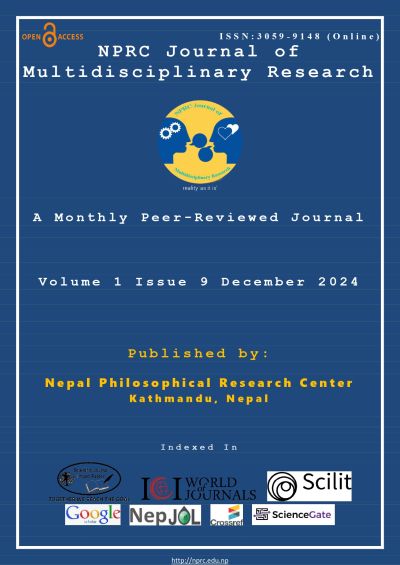Forensic Accounting Practices and Fraud Detection: Insights from the Nepali Banking Sector
DOI:
https://doi.org/10.3126/nprcjmr.v1i9.74170Keywords:
Accounting, Bank, Detection, Fraud, ForensicAbstract
This study examines the role of forensic accounting in fraud detection within Nepali banks, focusing on practices like control systems reliance, litigation hotlines, whistleblower hotlines, and digital fraud reviews to assess their impact on fraud prevention. A quantitative, descriptive, and causal-comparative approach was used to collect primary data from 385 employees of Nepali banks through a structured questionnaire. Descriptive statistics revealed moderate implementation and positive perceptions of forensic accounting practices, with control systems reliance showing the highest level of implementation. Correlation analysis confirmed strong positive relationships among all variables. Regression analysis indicated that factors such as sustainable governance systems, ethical philosophy, and digital fraud reviews significantly impacted fraud detection. The model explained approximately 57.2% of the variance in fraud detection, emphasizing the importance of forensic accounting in strengthening fraud prevention in Nepali banks. Forensic accounting plays a vital role in improving fraud detection within the Nepali banking sector. To enhance fraud detection capabilities, it is recommended that banks prioritize these key forensic accounting measures and integrate them more effectively into their operational frameworks.
Downloads
Downloads
Published
How to Cite
Issue
Section
License
Copyright (c) 2024 The Author(s)

This work is licensed under a Creative Commons Attribution-NonCommercial 4.0 International License.
This license enables reusers to distribute, remix, adapt, and build upon the material in any medium or format for noncommercial purposes only, and only so long as attribution is given to the creator.





